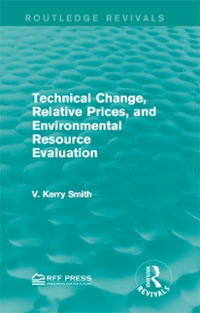Question
Q17. The change in the quantity consumed that is caused by a change in the relative price of agood, with real income heldconstant, refers to
Q17. The change in the quantity consumed that is caused by a change in the relative price of agood, with real income heldconstant, refers to the
A.
income effect.
B.
substitution effect.
C.
law of diminishing marginal utility.
D.
equimarginal rule.
Q18. In the shortrun, ________ factors of production arefixed, while in the longrun, ________ of them are.
A.
no; at least some
B.
some; none
C.
all; at least some
D.
all; none
Q19. Which of the following is a shortrun adjustment?
A.
Three new firms enter the computer chip industry.
B.
A firm hires six new workers.
C.
A firm opens two new plants.
D.
The number of farms in Kansas increases by10%.
Q20. Accountants include________ costs as part of afirm's costs, while economists include________ costs.
A.
explicit andimplicit; implicit
B.
implicit; no implicit
C.
explicit; explicit and implicit
D.
explicit; no explicit
Q21. Joe runs a restaurant. He pays his employees$200,000 per year. His ingredients cost him$50,000 per year. Prior to running hisrestaurant, Joe was a lawyer earning$150,000 per year. What would economists say isJoe's cost of running therestaurant?
A.
$150,000
B.
$250,000
C.
$400,000
D.
$200,000
Q22. Jane is a student at a university. She pays$10,000 per year intuition, $4,000 per year in livingexpenses, and$800 per year for books. Were she not inschool, she could earn$20,000 per year working as a bookkeeper and she would not live with her parents. What is her economic cost of a year incollege?
A.
$10,000
B.
$14,000
C.
$34,800
D.
$30,800
Q23. An example of an implicit costis:
A.
the interest on business loans.
B.
the materials used to produce the product.
C.
the wages paid to workers.
D.
the imputed rent on a store owned by the firm.
Q24. Diminishing marginal returnsoccur:
A.
both in the short run and the long run.
B.
only in the short run.
C.
only in time periods that are neither in the long run nor the short run.
D.
only in the long run.
Q25. A firm experiences diminishing marginal returnsbecause:
A.
all factors of production are fixed.
B.
at least one factor of production is fixed.
C.
all factors of production are variable.
D.
people"learn bydoing."
Q26.
number of workers units of output
0 0
1 10
2 30
3 44
4 55
Table 8.1
Refer to Table8.1, which gives afirm's production function. Assume that all nonlabor inputs are fixed. Diminishing marginal returns set in with the addition ofthe:
A.
third worker.
B.
sixth worker.
C.
fourth worker.
D.
fifth worker.
Q27. Marginal product is defined as the change in________ resulting from a oneunit increase in________.
A.
output; total product
B.
totalcost; output
C.
totalproduct; input
D.
totalproduct; output
Q28. ________ is a cost that is independent of the quantity produced by the firm and is incurred by the firm in the short run.
A.
Average total cost
B.
Economic cost
C.
Variable cost
D.
Fixed cost
Q29. ________ is a cost that changes with the quantity produced by the firm and is incurred by the firm in the short run.
A.
Variable cost
B.
Average total cost
C.
Economic cost
D.
Fixed cost
Q30. Average total costequals:
A.
total fixed cost plus total variable cost.
B.
average fixed cost minus average variable cost.
C.
total cost minus average cost.
D.
average fixed cost plus average variable cost.
Q31. In the shortrun, the marginal cost of producing the first unit of output is$50, the marginal cost of the second unit of output is$20, and the marginal cost of producing the third unit of output is$16. Thefirm's total cost of producing three units of outputis:
A.
$16.
B.
$48.
C.
$86.
D.
cannot be determined from the information provided
Q34. Marginal cost is definedas:
A.
quantity resulting from a oneunit increase in total variable cost.
B.
the change in quantity resulting from a oneunit increase in the change in total variable cost.
C.
the change in total cost resulting from a oneunit increase in the change in quantity.
D.
total variable cost resulting from a oneunit increase in quantity.
Step by Step Solution
There are 3 Steps involved in it
Step: 1

Get Instant Access to Expert-Tailored Solutions
See step-by-step solutions with expert insights and AI powered tools for academic success
Step: 2

Step: 3

Ace Your Homework with AI
Get the answers you need in no time with our AI-driven, step-by-step assistance
Get Started


